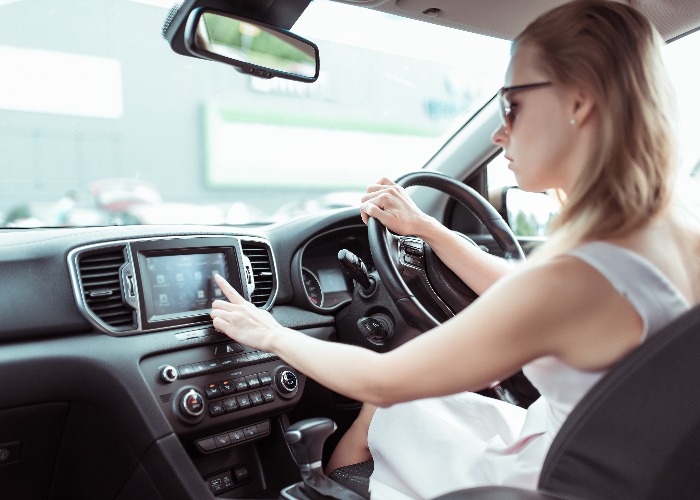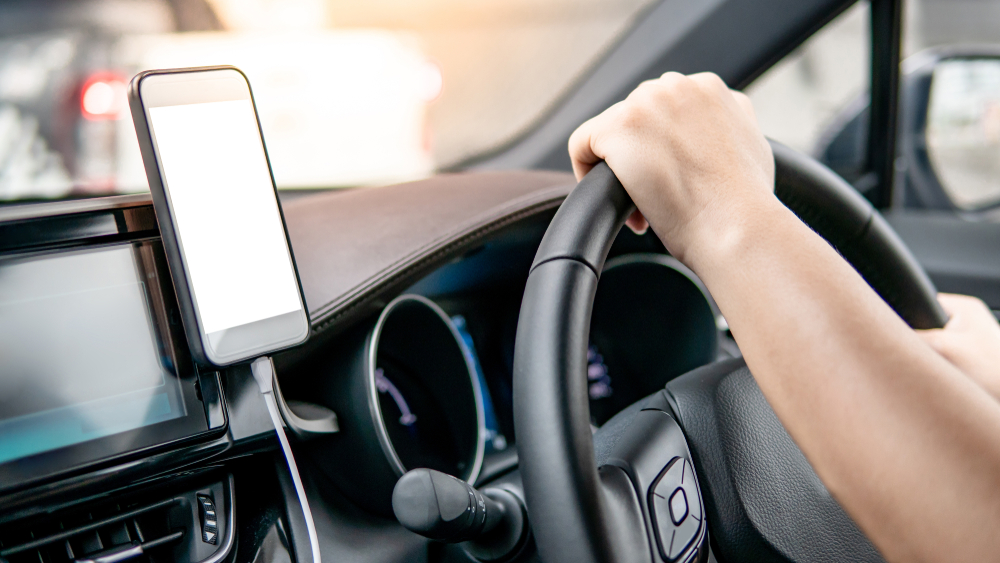Syncing phone with car leaves drivers at risk of fraud

Too many motorists are forgetting to erase personal data from their car before handing it on to the next owner, according to new research.
There is no shortage of warnings issued about sneaky scams these days, from emails purporting to be from your bank or PayPal, to phone calls from someone claiming you’re about to get a visit from the police on account of an unpaid tax bill.
But while we may be getting better at being cautious over these questionable emails, texts and phone calls, there could be a slightly surprising chink in your armour.
And it comes in the form of your car.
Coronavirus: online scams to watch out for
Syncing up with your car
Cars these days are far more technologically advanced than even just a few years ago.
One example of this is the way that we can now sync up our phones with our cars, allowing us to play our own music, make hands-free phone calls and get live traffic info.
There’s no doubt it’s a convenient option. No longer do you have to worry about switching radio stations just to find something to listen to, for example.
But it can also be potentially risky if you don’t remove that info once you sell it on.
After all, the car retains plenty of information about you as a result of that sync, which could fall into the wrong hands.
And yet apparently that’s what a vast number of us are doing.
A new study by consumer champions Which? found that more than half (54%) of the drivers it spoke to had synced their phone with their car, whether using bluetooth or a USB port.
And half of those (51%) did not bother to try to unsync their phone before parting with the vehicle, while a third said they took no action at all to clear out their personal information from the car.
Looking to buy a new car? Sort your finance with CarFinance247
Leaving ourselves vulnerable
This is clearly not a great move.
If you don’t unsync your phone and wipe any data about you retained by the car, then it may be accessible by the next owner, and even the owner after that.
They could have access to your messages, your contact numbers and addresses and GPS information telling them precisely where you work and where you live.
This is a positive treasure trove of information about you, a collection of data points that could potentially expose you to all sorts of scams or frauds.

Apathy and ignorance
So why aren’t motorists being more cautious with this information, and removing it from their cars before selling them on or handing them back to the dealership?
To my mind, there are ultimately two main factors here. The first is simple apathy ‒ people don’t bother to wipe their data because they can’t be bothered. And while this is undoubtedly the case for some, I’m not convinced it’s the main contributor.
No, I believe that a bigger issue here is simple ignorance over the fact that our cars are holding on to so much information about us and our lives.
If we all realised our motors not only retain that data about us, but that it’s available to the next Tom, Dick or Harry that buys it, wiping the data would surely become commonplace.
Looking to buy a new car? Sort your finance with CarFinance247
So what’s the solution?
It needs to made far clearer to drivers precisely what syncing their phone with their car really means, exactly what data is being shared, and where it is being stored.
Then we need to make it far more straightforward for drivers to clear that information out when they pass the car on.
Including a line or two about it in the manual should only be the first step, rather than the limit here ‒ just as many of us don’t bother reading the terms and conditions when signing up to a new energy deal or credit card, an awful lot of drivers give their car’s manual no more than a cursory glance.
And finally, the risks of not doing so need to be highlighted across the industry, from the car selling websites to the franchised and independent dealerships.
Because the truth is that while many people are now far more aware about the dangers of phishing emails and dodgy phone calls from people pretending to be the taxman, financial fraud is still rising so your data is even more valuable right now than ever before.
We need drivers to fully comprehend what info they are putting at risk, and ensure they understand how to protect it when the time comes to trade up for a new model.
*This article contains affiliate links, which means we may receive a commission on any sales of products or services we write about. This article was written completely independently.
Comments
Be the first to comment
Do you want to comment on this article? You need to be signed in for this feature